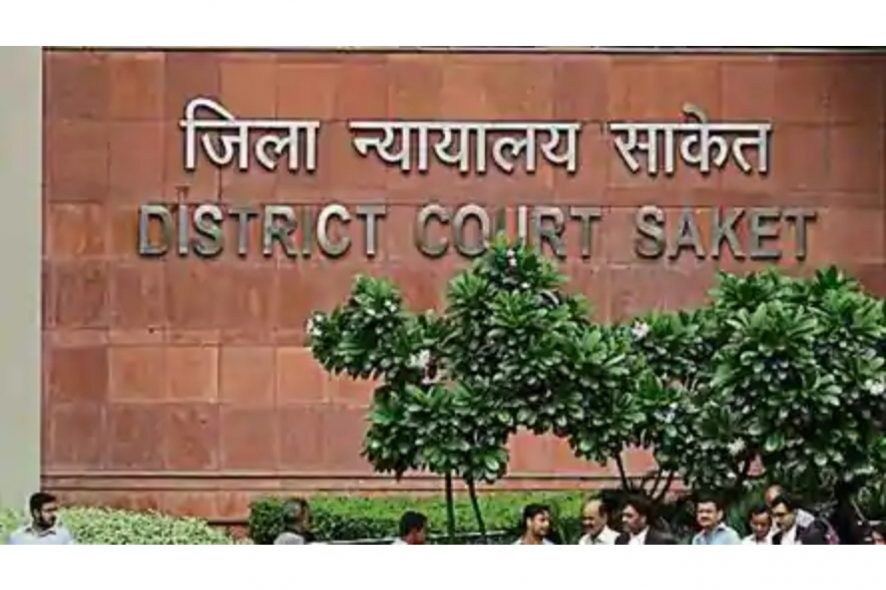Saket Courts, New Delhi: Anuj Agrawal, Additional Sessions Judge –05 while addressing case wherein the maintenance sought by wife, held that,
“It cannot be believed that a person who was capable of supporting a family by getting married, would all of a sudden become devoid of all sources of income.”
Factual Background
The Complaint under Section 12 of the Domestic Violence Act was filed by the respondent stating that she was the legally wedded wife of the appellant and was not working. Respondent was a divorcee and her second marriage got solemnized with the appellant. As per the respondent/wife due to physical, verbal, emotional, economic and domestic violence committed by the appellant and his mother, she had been living separately from him since November 2017.
Respondent/wife is stated to be living in rented accommodation and sustaining herself with great hardship as she was having no source of income.
Hence the complaint under Section 12 of the Protection of Women from Domestic Violence Act, 2005 was filed.
Trial Court assessed the monthly income of the appellant as Rs 1 lakh per month and awarded monthly interim maintenance o Rs 30,000 including rent for alternate accommodation in favour of the complainant.
Appellant/husband was aggrieved with the impugned order and assailed the same.
Analysis, Law and Decision
Firstly, the Court observed that while fixing an interim maintenance court has to take a prima facie view of the matter and need not critically examine the respective claims of the parties regarding their respective incomes and assets because for deciding the same the evidence would be required.
Adding to the above, Court stated that an aggrieved person cannot be rendered to lead a life of a destitute till completion of the trial.
Further, Court cited the decision of the Supreme Court in Jasbir Kaur Sehgal v. District Judge, Dehradun, (1997) 7 SCC 7, wherein the test for computing maintenance was laid down.
Plea of the husband that the complainant was a well-qualified woman and was capable of earning and rather she was earning by running a high-end fashion clothing company in the name and style of ‘Allure’ in partnership with her mother as well as from her consultation job.
Court reiterated the settled law that simply because the wife was earning, her claim for maintenance cannot be rejected. Point to be considered is whether the amount the wife is earning sufficient to meet her creature comforts; to keep her body soul together; to keep the wolf from the door; and to keep the pot boiling.
Supreme Court’s decision in Rajnesh v. Neha,(2021) 2 SCC 324 was also considered in the present matter.
Therefore, the plea of the appellant/husband that respondent/wife was earning was without any merit.
With regard to the territorial jurisdiction of the trial court, the present appeal is barred by limitation.
Further, since the domestic violence report is already on record, the same as an important bearing as far as the question of territorial jurisdiction of the trial court and summoning of appellant/husband was concerned.
Bench opined that the plea of appellant/husband that trial court had no territorial jurisdiction to entertain the complaint filed by respondent/wife was without merit and the same stood rejected.
Husband before the trial court claimed to be a Businessman but having NIL monthly income and sustaining himself on charity and borrowing from relatives and friends. Further, he claimed that his monthly expenditure was Rs 27,360 ad had no resources and was surviving on loans and charity.
Bench on perusal of record noted that the appellant was a qualified person having qualification of MBA as well as having directorship of various companies and even if the income of the appellant was assumed to be NIL on the date of filing of his income affidavit before the trial court, but his earning capacity could not be lost sight of.
Further, it was found that the appellant/husband had concealed certain entries from his bank statement, and he had no explanation for the same.
In Court’s opinion, appellant opted not to file the bank statement for the period 2018 and thereby leaving no doubt that he was not coming up and with full truth with respect to his economic capacity.
Court also took judicial notice of the fact that appellant/husband’s company was one of the manufacturers of the brand ‘Too Yum’ and the brand ambassador of the said brand was ‘Virat Kohli’, hence it looked highly improbable that a company which is running into great losses was in a position to afford a celebrity of such stature for the advertisement of its product.
Hence,
“…appellant/husband is a man of means having vast business and appears to be impersonating himself as a ‘pauper’ so as to defeat the legitimate claim of the respondent/wife for the maintenance.”
Concluding the matter, Court held that the trial court’s assessment of the maintenance was fully justifiable and could not be faulted with. [Rebala Sudhir Reddy v. State, Criminal Appeal No. 151 of 2020, decided on 3-1-2022]



